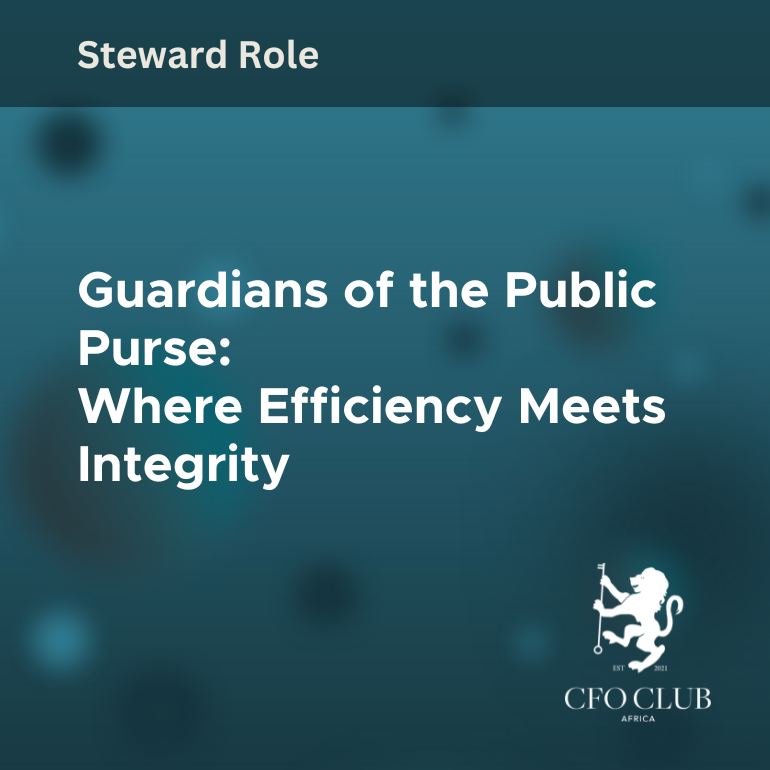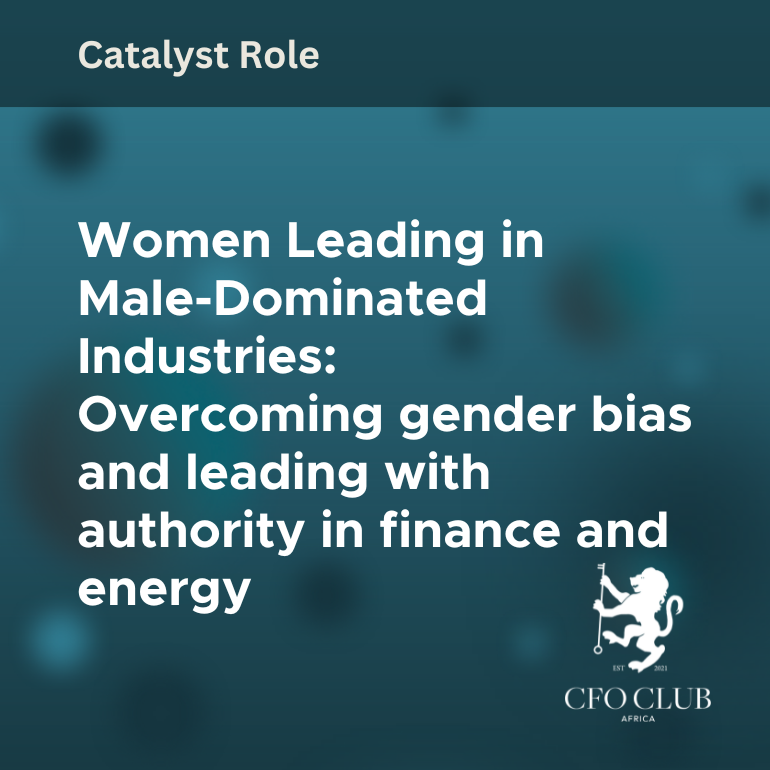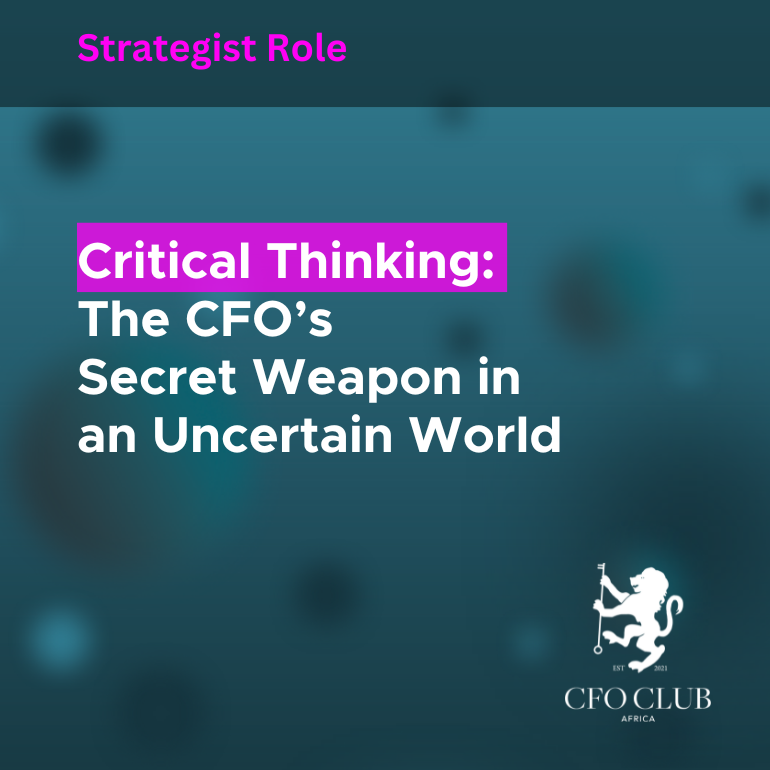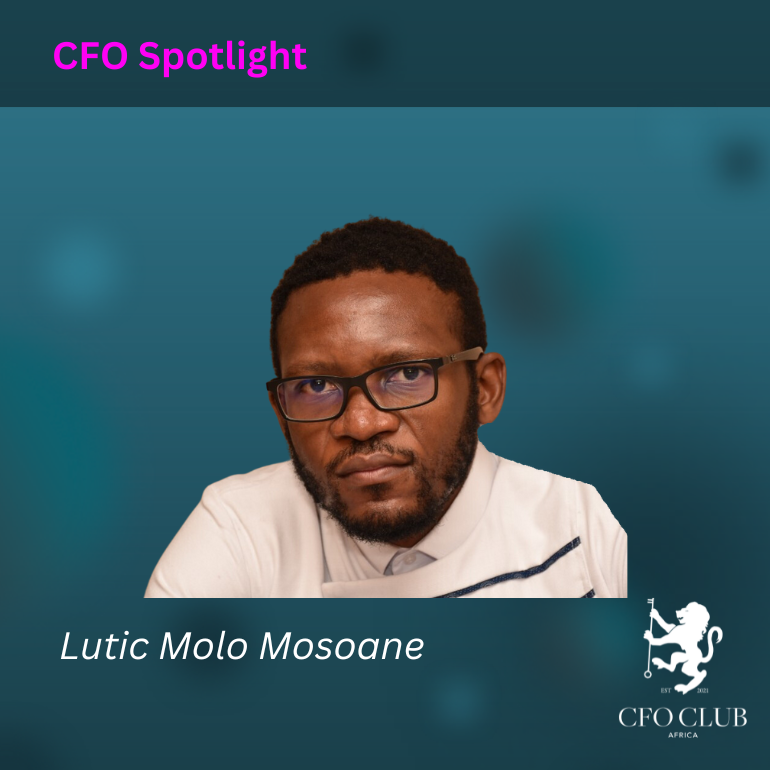Guardians of the Public Purse: Where Efficiency Meets Integrity
In public finance, accountability is more than a professional duty. It is a promise to citizens that their money will be used honestly, efficiently, and for the good of the country. Every CFO working in the public sector stands at the intersection of purpose and pressure. The challenge is not only to keep the numbers clean but to make every decision count toward better service delivery, less waste, and greater public trust.
Building Confidence Through Transparency
Transparency is the heart of financial credibility. When stakeholders can see how funds are collected, managed, and spent, trust grows. This visibility should not be limited to formal reporting periods. It must become part of the daily rhythm of financial management.
Simple tools like real-time dashboards, open data portals, and performance summaries make it possible for both internal teams and citizens to track spending outcomes. When information is available and understandable, suspicion decreases and accountability strengthens. For CFOs, this openness is not a risk; it is protection. It ensures that decisions are supported by evidence, not opinion.
Transparency also drives performance. When employees know that their work is visible, accuracy improves. When the public can trace where the money goes, misuse becomes harder to hide.
Integrity in Every Rand Spent
Ethical leadership is tested in the small decisions that happen quietly every day. Procurement shortcuts, informal approvals, and vague justifications might save time in the short term, but they erode public confidence and credibility.
CFOs must insist that every transaction tells a story of value and fairness. Before authorising an expense, the key question should always be: “Does this serve the public and reflect responsible stewardship?”
When mistakes occur, honesty is the only response that protects reputation. A culture that hides problems will eventually collapse under its own weight. A culture that addresses them builds resilience. Ethical finance management does not eliminate risk, but it ensures that when risks surface, they are met with integrity rather than avoidance.
Systems That Protect the Public Interest
A strong control environment is not about red tape. It is about ensuring that systems support accountability and prevent misuse of resources. Controls are the guardrails that keep an organisation from drifting off course.
Good controls simplify rather than complicate. They are clear, consistent, and supported by technology. Automated approval workflows, proper segregation of duties, and real-time monitoring all help reduce errors and fraud. Regular audits and reconciliations are not punishment; they are part of the normal rhythm of sound financial management.
CFOs who maintain a living control environment—one that evolves with technology and organisational needs—make it easier for teams to do the right thing. Controls should not be feared; they should be understood as the tools that protect both the organisation and its people.
Efficiency Is an Ethical Responsibility
In the public sector, every inefficiency has a human cost. Money wasted on duplicated processes or delayed projects is money that could have funded infrastructure, education, or healthcare. Efficiency, therefore, is not just an operational goal. It is a moral obligation.
CFOs who pursue efficiency are not cutting corners. They are ensuring that limited resources stretch as far as possible. This can be achieved through better workflow design, digital systems that eliminate manual bottlenecks, and simpler reporting structures.
Technology plays a crucial role here. Real-time financial tracking, automated reporting, and integrated budgeting platforms allow finance teams to monitor spending and performance with precision. But efficiency also depends on people. When teams understand the impact of their work, they become more invested in using resources wisely.
Leadership That Sets the Tone
Ethical cultures begin at the top. When leaders demonstrate integrity, others follow. A CFO’s actions, communication style, and consistency all signal what is acceptable and what is not.
If the finance leader overlooks a small breach, the message is clear: the rules are flexible. But when the leader takes immediate corrective action, it reinforces the value of accountability. Public sector teams look to their CFOs for moral clarity. By speaking plainly, acting decisively, and leading by example, CFOs strengthen the ethical backbone of the entire organisation.
True leadership in this environment requires courage. It means standing firm when there is pressure to bend the rules. It also means educating others about why those rules exist—to protect citizens, not to slow down progress.
Balancing Compliance and Service Delivery
Compliance frameworks like the PFMA and MFMA are often viewed as administrative burdens, but they exist to ensure fairness and transparency. The challenge is to meet these obligations without creating unnecessary delays or frustration.
This balance can be achieved through smarter processes. Clear delegation of authority, timely reporting, and open communication with internal auditors allow compliance to become part of normal operations rather than a last-minute scramble. When compliance supports performance instead of competing with it, everyone wins—the organisation, the employees, and the citizens they serve.
Stewardship That Builds Public Trust
Stewardship is not about controlling others; it is about caring for what has been entrusted to you. Public money is not the government’s money. It belongs to the people, and finance leaders are its caretakers.
Every CFO in the public sector carries that responsibility. By combining strong systems, transparent communication, and consistent ethics, they create an environment where accountability is automatic, not optional.
Efficiency without ethics leads to exploitation. Ethics without efficiency leads to stagnation. The public sector needs both. When finance leaders get that balance right, they do more than manage budgets—they help build a country that citizens can trust.





